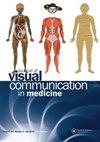Perceptions of using infographics for scientific communication on social media for COVID-19 topics: a survey study
IF 0.7
Q4 RADIOLOGY, NUCLEAR MEDICINE & MEDICAL IMAGING
引用次数: 6
Abstract
Abstract Navigating for accurate information, especially health- and science-related content, on social media has been challenging during the COVID-19 pandemic. Although infographics are a popular medium for simplifying text-based information into visual components, their usefulness during a global health crisis has not been explored. The study aims to explore the perceptions of infographics in conveying scientific information related to COVID-19 on social media. Following a social media campaign that published COVID-19 related infographics from May to August 2020, a cross-sectional survey was administered to social media users, primarily students from Western University. Several questions asked respondents to make comparisons with written articles when reporting their perceptions of infographics. Seventy-three percent of students from 361 responses belonged to health-related academic backgrounds. Seventy-two percent felt more likely to share infographics than written articles on social media due to the visual appeal. Nearly 90% felt it was easier to navigate through complicated science and that more scientists should use infographics on social media. Educational background did not influence the perceived usefulness of infographics in understanding scientific information. Infographics are perceived favourably in conveying scientific information about COVID-19 on social media. Findings from this study can inform communication strategies during a pandemic and, more broadly, global crises.关于在社交媒体上就COVID-19主题使用信息图表进行科学传播的看法:一项调查研究
在COVID-19大流行期间,在社交媒体上导航准确信息,特别是与健康和科学相关的内容一直具有挑战性。虽然信息图表是一种将基于文本的信息简化为视觉组件的流行媒介,但它们在全球卫生危机中的用处尚未得到探讨。该研究旨在探讨信息图表在社交媒体上传达与COVID-19相关的科学信息时的看法。在2020年5月至8月发布与COVID-19相关的信息图表的社交媒体活动之后,对社交媒体用户(主要是西部大学的学生)进行了一项横断面调查。有几个问题要求受访者在报告他们对信息图表的看法时将其与书面文章进行比较。在361名受访者中,73%的学生拥有与健康相关的学术背景。72%的人认为,由于视觉吸引力,他们更愿意在社交媒体上分享信息图表,而不是书面文章。近90%的人认为在复杂的科学中导航更容易,更多的科学家应该在社交媒体上使用信息图表。教育背景不影响信息图表在理解科学信息方面的感知有用性。人们认为信息图表有利于在社交媒体上传达有关COVID-19的科学信息。这项研究的结果可以为大流行期间以及更广泛的全球危机期间的传播战略提供信息。
本文章由计算机程序翻译,如有差异,请以英文原文为准。
求助全文
约1分钟内获得全文
求助全文
来源期刊

Journal of Visual Communication in Medicine
RADIOLOGY, NUCLEAR MEDICINE & MEDICAL IMAGING-
CiteScore
1.50
自引率
14.30%
发文量
34
期刊介绍:
The Journal is a quarterly, international, peer-reviewed journal that acts as a vehicle for the interchange of information and ideas in the production, manipulation, storage and transport of images for medical education, records and research.
 求助内容:
求助内容: 应助结果提醒方式:
应助结果提醒方式:


